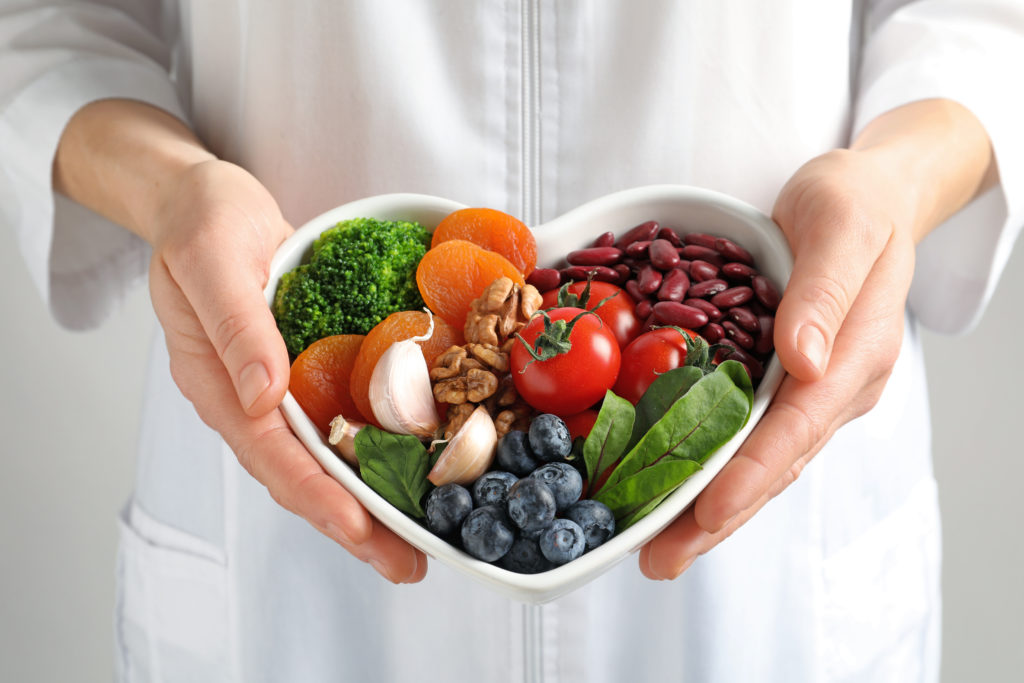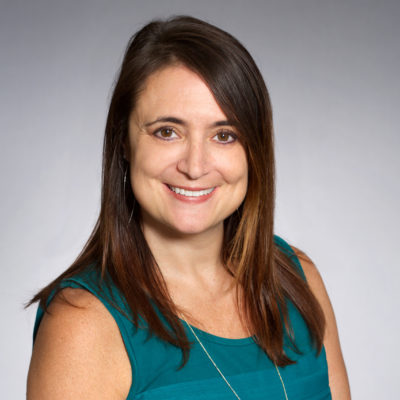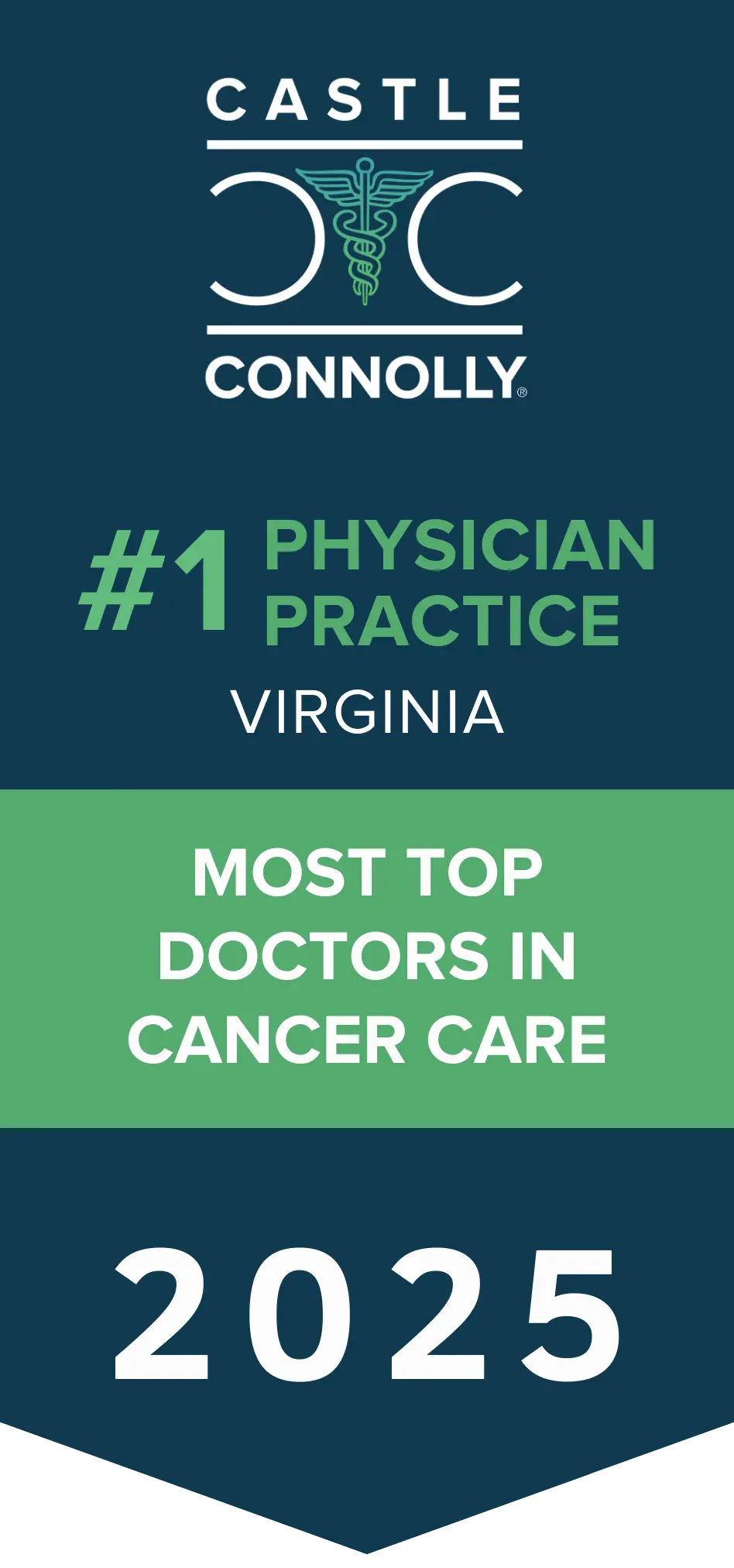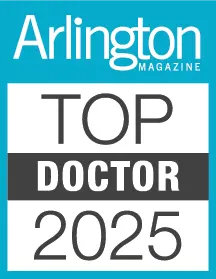
If you or a family member have been diagnosed with cancer, and you have questions, you are not alone! As a dietitian at Virginia Cancer Specialists (VCS), we see adult patients of all ages, with common and rare cancers, early and late stage, and various sites in the body. Often, if patients don’t have access to a registered dietitian nutritionist (RDN), they will go online where it’s often difficult to discern fact from myth and science from opinion. Luckily, patients at VCS have access to see a dietitian as part of their care, and over the years, we have heard many recurring questions.
Typically, when patients present to the RDN team, they are looking to manage: 1) rapid weight loss; 2) symptoms related to the cancer or treatment that affect what and how much they can eat; 3) good nutrition for best treatment results and/or cancer survivorship; or 4) weight gain (typically associated with overweight prior to diagnosis and/or weight gained due to hormonal changes or treatments).
As you can imagine the questions posed for each of these conditions are very different. This is the first in a series of articles that will answer our top questions for each of these situations, starting with sustained or rapid weight loss!
How can I gain weight if I don’t want to eat?
This question is the most common. Many patients have tried to lose weight with varying degrees of success over the course of their lifetime, before suddenly to finding themselves with cancer and unable to keep weight on. It’s an unfamiliar and opposite feeling that many listen to their bodies, eat less than usual, and continue to lose weight and become nutrient deficient. The key is to retrain your brain to think about approaches to gain weight. These may include:
- Eating more frequently. You can balance out the calories lost by eating less, just by eating small amounts more often.
- Choosing foods that are nutritious, but more caloric. Many fruits and vegetables, while healthy for you, can fill you up with relatively little calories. This can be foods high in nuts or seeds (if you tolerate) or nut butters; vegetable oils; full-fat dairy (if you aren’t at an elevated risk of heart disease); and or sauces or toppings.
- Packing calories into a smoothie – you would be surprised how many calories and how much nutrition you can blend into a smoothie! Use healthy ingredients like avocado, Greek yogurt, flax or chia seeds, bananas, mixed with juice, milk, or a protein shake.
- When in doubt, splurge. Significant weight loss in a cancer patient indicates that the body is not getting the calories it needs at a time when it may need more than usual. If you find that, whatever you do, you can’t stop the weight loss or can’t gain weight, you may have to eat foods that are not as nutritious and that you would typically avoid to get the calories in.
My weight keeps fluctuating. How can I tell what my real weight is?
Your weight will vary based on time of day, location, and clothing. To track your true weight, consistently weight yourself:
- First thing in the morning, after you have used the bathroom and before you eat or drink anything.
- On the same scale.
- With the same level of clothing on (none, light sleep clothes).
I get full very easily! What should I do?
Early satiety, that feeling of being full more quickly than usual, is a common occurrence in cancer patients. To overcome the effects of not being able to eat as much at a time as you are used to, try:
- Eating lesser amounts of food more frequently.
- Take a break while eating to digest.
- Trying not to drink too much liquid at the same time as eating.
What has worked before doesn’t work now. What should I do?
During cancer, it’s not uncommon for your body to play little tricks on you – like food tasting different. Take this time to re-evaluate and go back to basics and build from there. What foods are you craving, if any? What foods are vehicles to get more calories in? What foods do you keep down?
I am diabetic. How do I focus on gaining weight when I’m focusing on controlling my blood sugar?
The rule of thumb is that cancer trumps diabetes. If the only way you can keep weight on is to eat higher sugar- and carbohydrate-containing foods, then see your general practitioner or endocrinologist to evaluate your current blood sugar levels and a game plan to control them at a higher carb intake.
I’m doing all I can and keep losing weight!
While it’s easier said than done, be patient. It can take time to turn around a weight loss trend. The body doesn’t typically lose weight and then all the sudden start to gain. Patients will often see a progression of slowing weight loss and weight maintenance prior to starting to gain weight. If your weight is staying steady, but is lower than you want it to be, that’s an indication to add a little more!
















